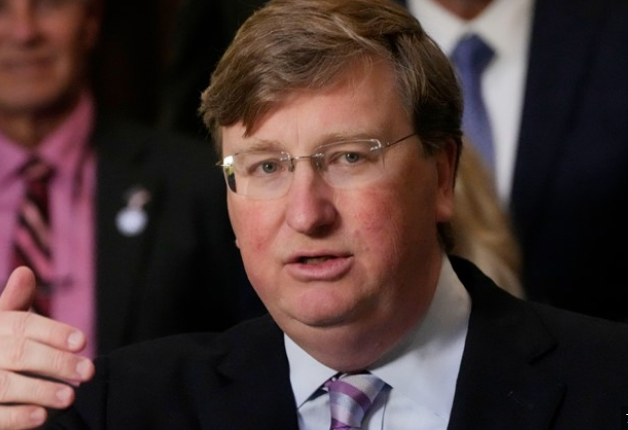Mississippi Governor Tate Reeves has unveiled an ambitious plan to phase down the state’s personal income tax over the next few years, with the ultimate goal of eliminating it entirely by 2029. This substantial tax reform initiative is poised to reshape Mississippi’s fiscal policies, but not without challenges and potential conflicts with the Republican-controlled Legislature.
Governor Reeves contends that this significant tax change will not necessitate spending cuts or tax increases in the 2025 budget. He envisions a Mississippi where residents enjoy the benefits of a phased-out personal income tax, fostering economic growth and prosperity. Despite prior clashes with the Republican-controlled Legislature, Reeves is determined to push forward with this transformative plan to overhaul the state’s finances.

Governor Reeves is not limiting his focus to tax reform alone; he has outlined a comprehensive agenda that extends beyond financial matters. In addition to the phasedown of personal income tax, Reeves is urging Congress to support legal reform, infrastructure maintenance, and job development in Mississippi. The multifaceted approach aims to address various aspects of the state’s needs, providing a holistic solution for sustained growth.
Furthermore, Reeves is advocating for increased spending on the Jackson police force, emphasizing the significance of additional resources as the police cover more extensive areas. These proposals may appear conflicting at first glance, but Reeves sees them as integral components of his broader plan to overhaul Mississippi’s personal income tax expenditures.
One of the challenges in realizing Reeves’ vision lies in determining Mississippi’s spending limits. The governor opposes a $7.5 billion spending cap, arguing that this amount is insufficient and could hinder the planned reductions in personal income tax. The complexity of managing state finances and reconciling budgetary constraints poses a dilemma for both the governor and lawmakers.
As the decision-making deadline approaches in May, Mississippi officials must navigate the intricate balance between funding critical sectors like education and healthcare. The governor’s vision for a phased-out personal income tax faces the practical challenge of aligning financial resources with the diverse needs of the state.
The Road Ahead: Balancing Fiscal Responsibility and Reform
Governor Tate Reeves’ ambitious revival plan for Mississippi reflects a commitment to reshaping the state’s fiscal landscape. The phasedown of personal income tax, coupled with proposals for legal reform, infrastructure investment, job development, and increased police spending, presents a multifaceted strategy. However, navigating the complexities of Mississippi’s budget and addressing potential conflicts with lawmakers will be key to the success of this transformative initiative.
Read More:
- 2024 Stimulus Check Update: $79 Billion Tax Cut Unveils $2,000 Claims – Who Qualifies?
- Alleged sex assault on female officer by inmate raising alarm on California’s prison policies
- Controversy Erupts Over Megan Thee Stallion’s Diss Track Reference to Megan’s Law Namesake
As the state anticipates significant changes in its taxation structure, the road ahead involves careful deliberation, collaboration, and strategic planning. The success of Reeves’ vision hinges on finding a balance between fiscal responsibility and the imperative for reform, ultimately determining Mississippi’s trajectory in the years to come.

